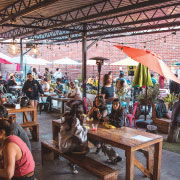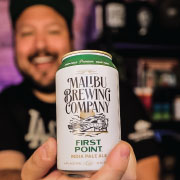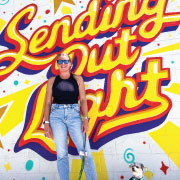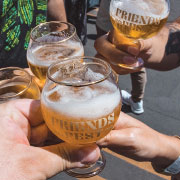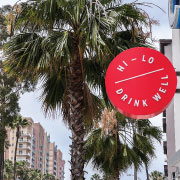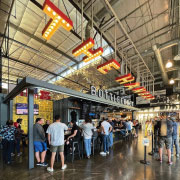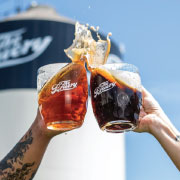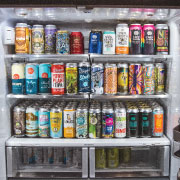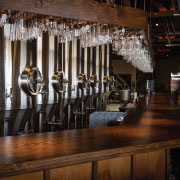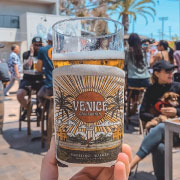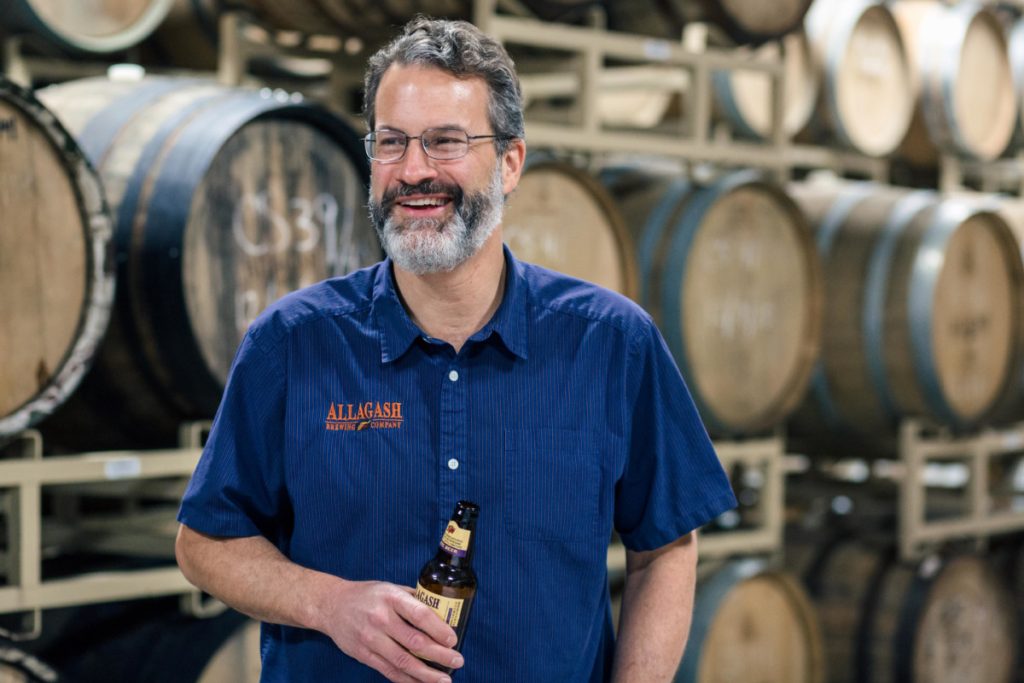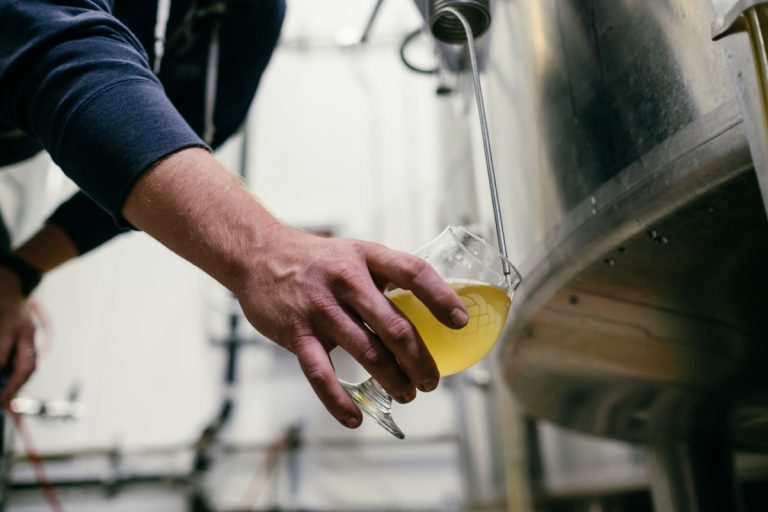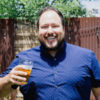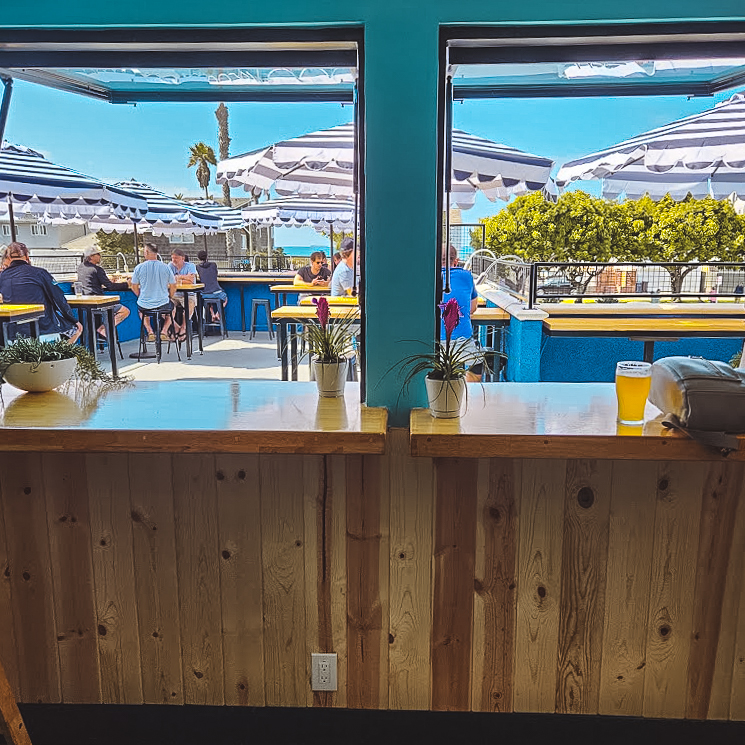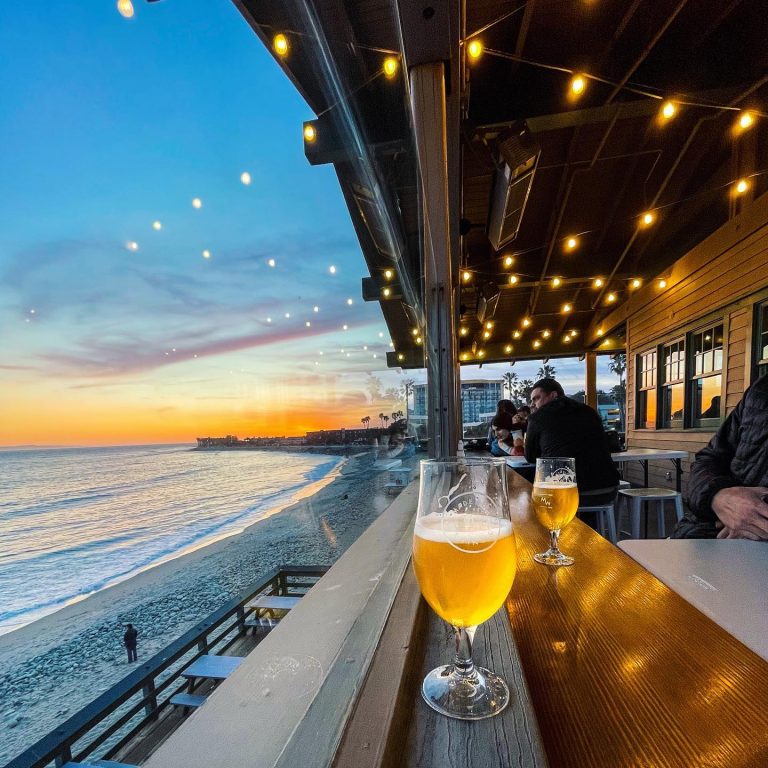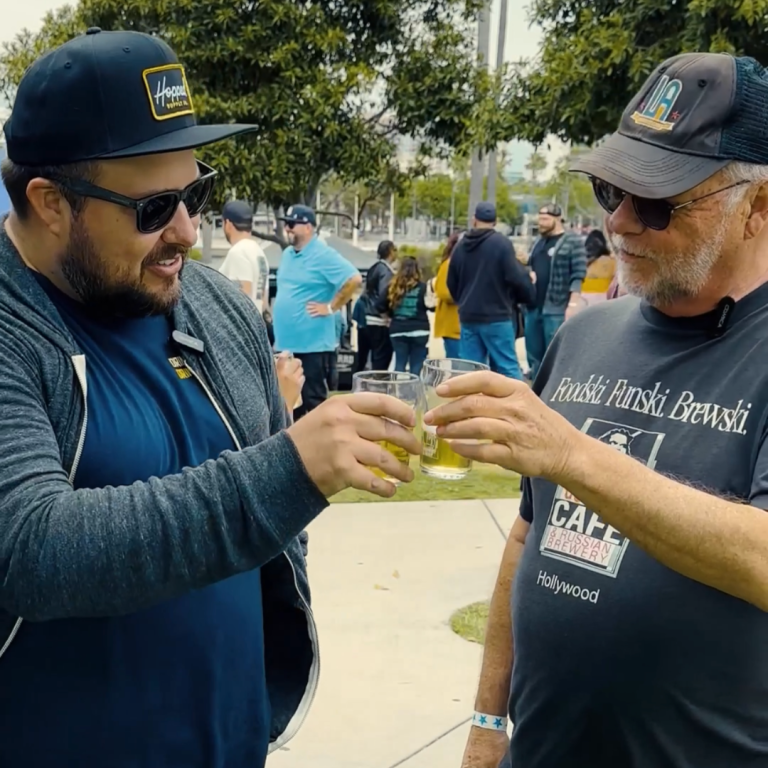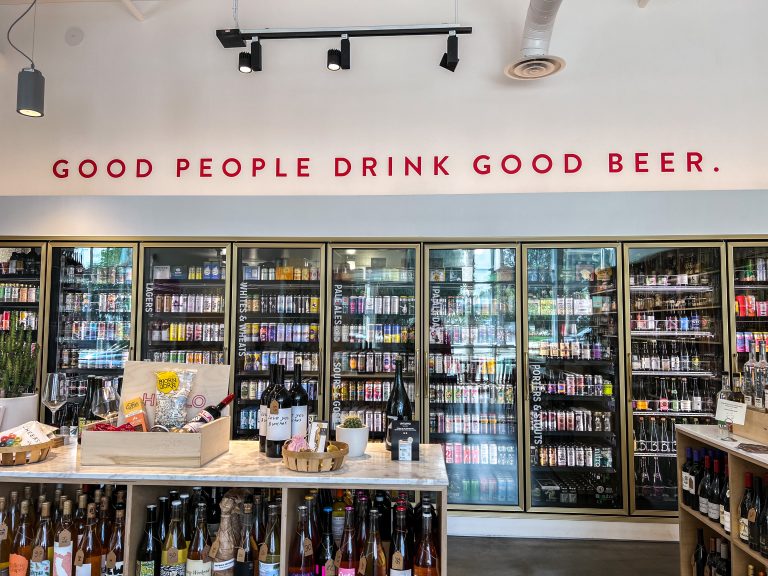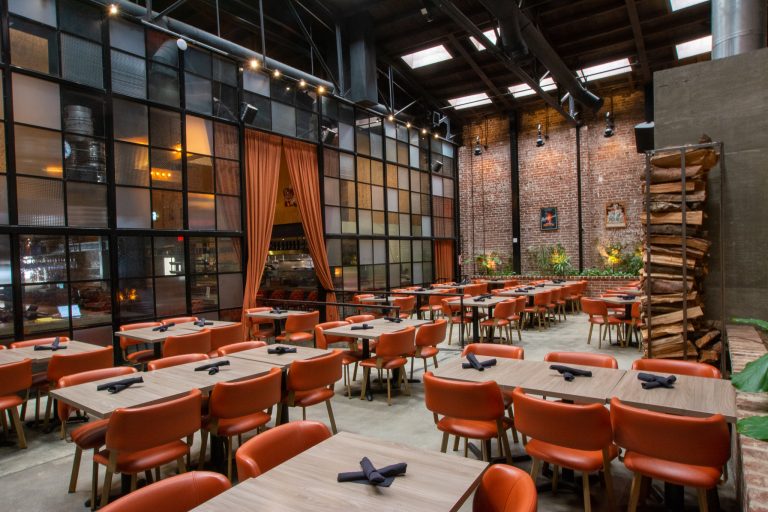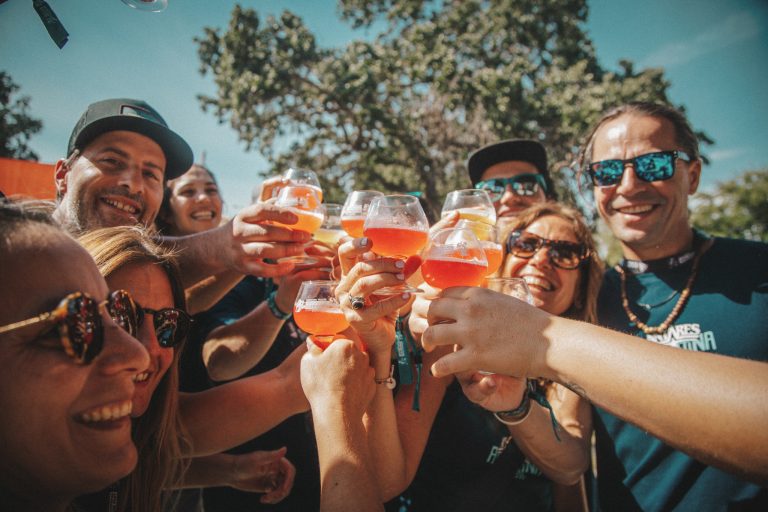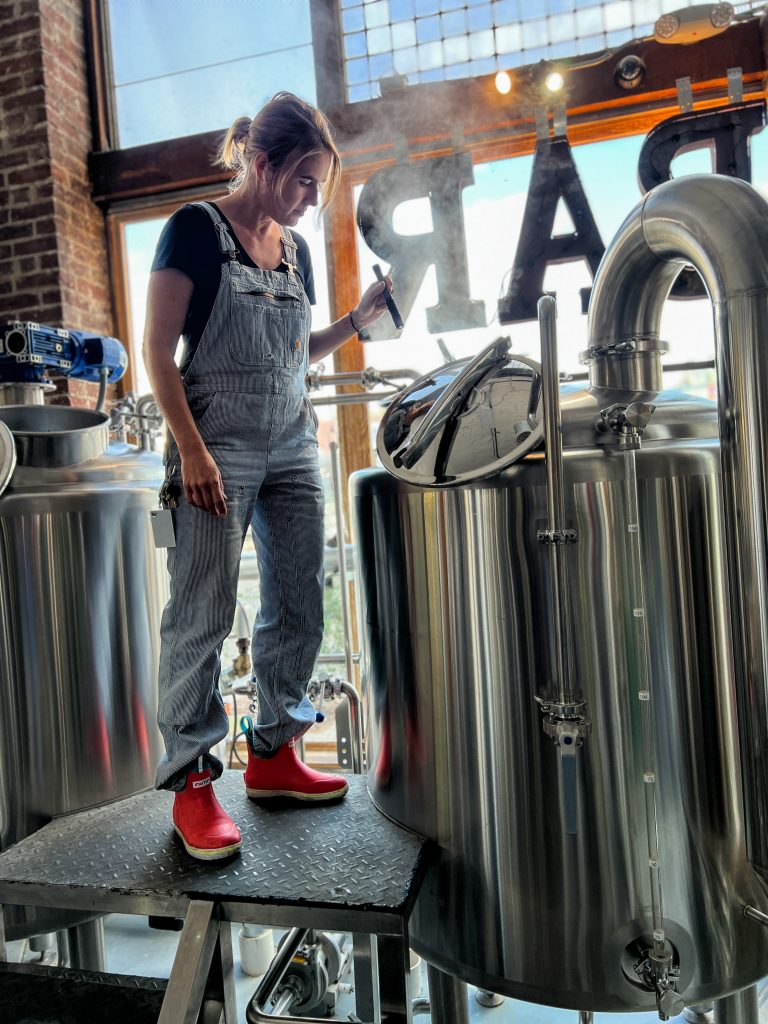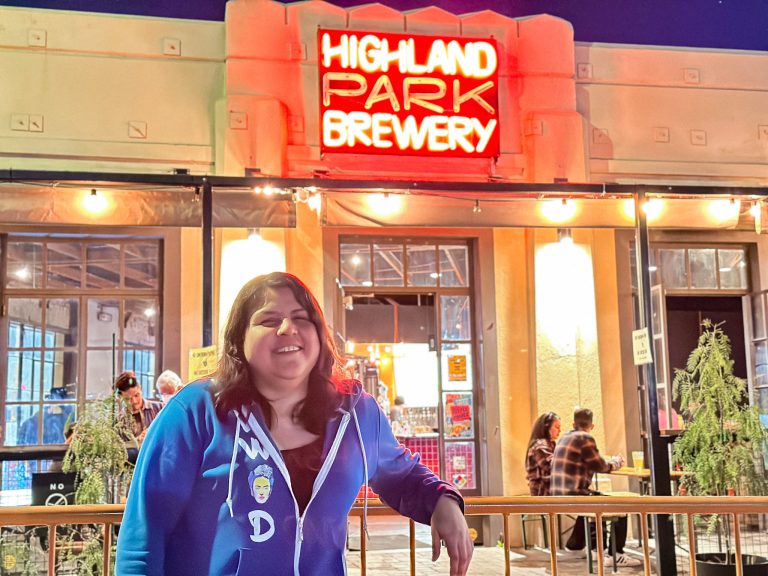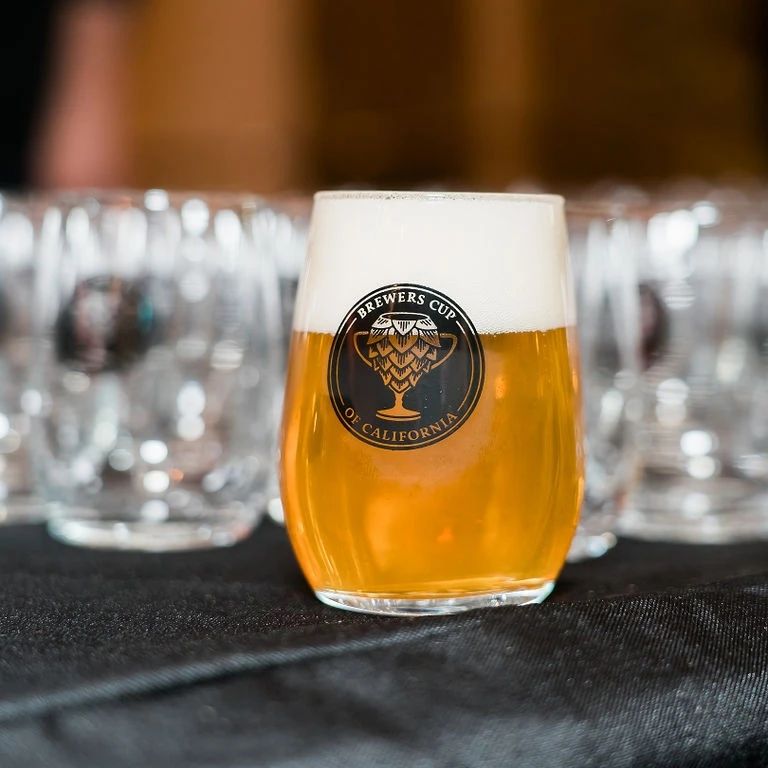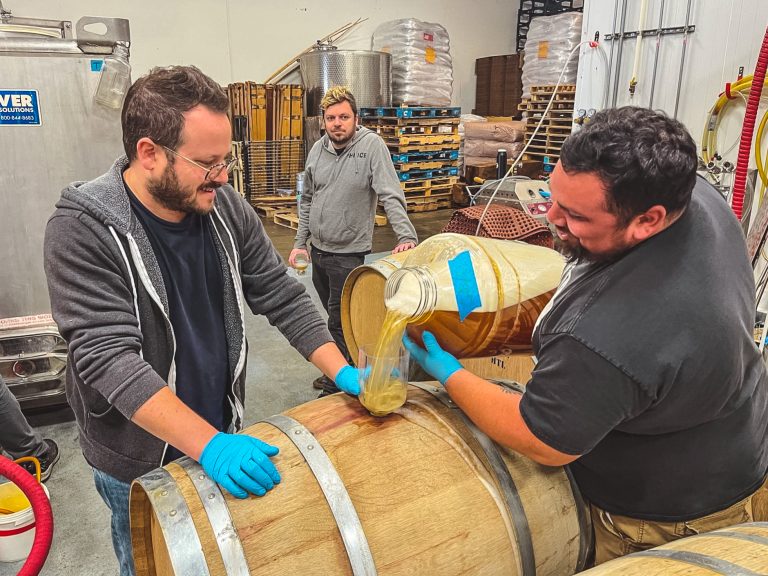Allagash White is often a gateway into the craft beer world. For many hop lovers, it was one of the first craft brews we ever tried, giving us a hint that there was a whole other world out there beyond what we’d experienced at house parties and tailgates.
There’s also a good chance that you’ve spent much of your ensuing time since drinking Allagash White on draft.
25 years after Rob Tod founded the Allagash Brewing Company in Portland, Maine, it’ll be a little easier to take those beers to the beach or a BBQ. Last month, along with Georgia, North Carolina, and South California, California became one of the first states to welcome Allagash White cans to shelves. Four packs of 16 oz. cans are now available for sale, as is a completely different brew: the hop-forward, Belgian-style table beer, River Trip.
While Tod is a native New Englander, his mom is from Los Angeles, and he’s spent the last five decades visiting the City of Angels at least twice a year. He’s so chill to chat with that it’s easy to see how the laid-back attitudes of both Southern California and Maine have blended together not just in Tod as a person but also in the brewery he’s created.
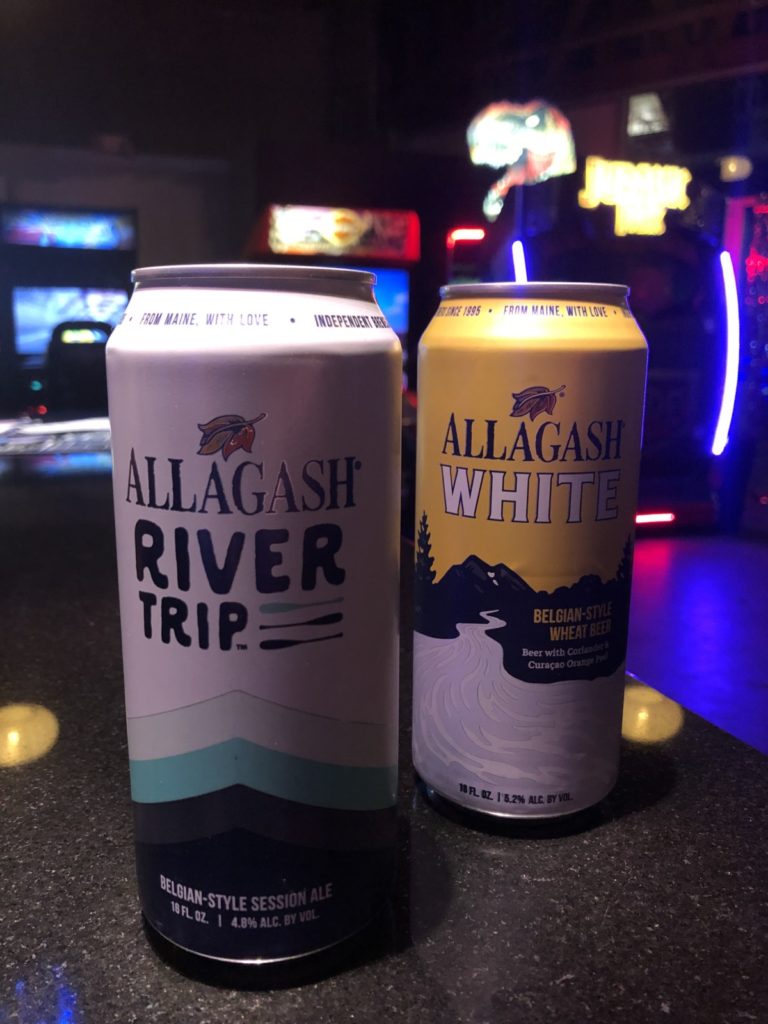
I got the chance to sit down with Tod at Player One in North Hollywood, where he sipped on an Allagash White — it’s still his all-time favorite beer — while I had the chance to try the ridiculously smooth River Trip. It turns out that bringing a Maine-focused brand to California is a far more natural fit than you may realize.
Emily Krauser: I’ve visited your brewery and seen first-hand how focused Allagash is on local ingredients. How do you unite Maine and California sensibilities now that you’ve expanded in a new way out here?
Rob Tod: I guess I kind of look at it like delivering Maine to California. I feel like I’ve got this connection, especially to Los Angeles, because I’ve come here my entire life. Obviously, this time of year I absolutely love coming out here because it’s gorgeous — it’s perfect. And we get the beer out here fresh. It all comes out in refrigerated trucks, and it only takes about three-and-a-half days to get out here. We spend a ton of time and energy on freshness and rotation, so when I come out and drink the beer in L.A., it tastes just as fresh as when I drink the beer locally in Maine. We really think of Allagash White as the definitive white beer.
EK: I hear it’s your favorite style to drink — and it happens to be what you’re drinking right now.
RT: I love drinking the White. It’s literally my favorite thing in the world to drink. I love it, and I feel like I love it more with each passing year. It’s funny, because I’ll drink it in different settings or with different foods and discover new flavors all the time in the beer. Everyone gives me a hard time at the brewery because in guest relations, our retail store, we’ll have like 12 beers to choose from, but whenever I step up to the bar, people don’t even ask me what I want — they just pour a White and hand it to me. I love it more today than I did 25 years ago when we started brewing it.
There are other beer styles, though, that I really love. We go to Germany every year to an equipment trade show, and I love drinking the pils over there, kolches, and the smoked beers in Bamburg. I love beer. You hear a lot of brewers say this, but Sierra Pale Ale is just one of my favorite beers to drink. The quality’s there. It’s just a fantastic, balanced classic.
EK: I know that in addition to using local ingredients, Belgian beer is really the focus of Allagash. Back in 1995, almost no one was doing that, so what made you choose that style to hone in on?
RT: When I started, I don’t know the exact number, but there were maybe like 250 breweries in the country. Aside from the big brewers, most of them were doing British and German styles or the Pacific Northwest pale ales, and they were making phenomenal beers. But I built my brewery on my own, basically. I had done a ton of construction jobs in high school and college, and I like working with my hands. I was on a pretty limited budget, so I knew I’d be spending nearly a year building a brewery and hopefully my lifetime running it. I didn’t really see the point in making a beer that people could already get, and I looked at the Belgian brewing tradition as an opportunity to give people a really unique experience with beer that they maybe hadn’t had before.
Emily: How long did it take for people to catch on to drinking Belgians?
Rob: The first 10 years was an uphill battle, to say the least. I used to walk into accounts with the Allagash White in the ’90s and pour bartenders and managers a sample, and they’d look at it, and it was cloudy. The first thing they’d say was, ‘What’s wrong with it? Why does it look like this?’ And then they’d taste it and they’d be like, ‘Why does it taste like this? Why does it smell like this?’ Because they’d never been exposed to traditional, balanced wheat beers. It was tons of education, tons of time on the road, beer dinners, talking, spending time with our wholesale partners — a long, slow grind.
EK: When did you first know you wanted to open a brewery?
RT: I completely stumbled into the beer business. I went to school in Vermont and didn’t know what I wanted to do when I graduated, so I moved out to Colorado and worked generally either washing dishes or working construction. I got a little tired of that and ended up moving back East, and literally the day I got back to Vermont, I called a buddy of mine and said, ‘I need a job. I’ll do anything.’ And he said, ‘Well, I’m working at this little local brewery and my boss just today said we needed a part-time keg washer.’ I was like, ‘I can get paid and drink beer? I’ll be there tomorrow morning.’ So, I showed up there and instantly fell in love with everything I saw at the brewery. It was love at first sight for sure. I spent a year there and then I went over to Maine and started Allagash. I probably didn’t know anywhere near enough as I should have to actually be starting a brewery, so I kept it real simple to start with. I was alone. I just made the Allagash White, draft only, for the local Portland, Maine, market.
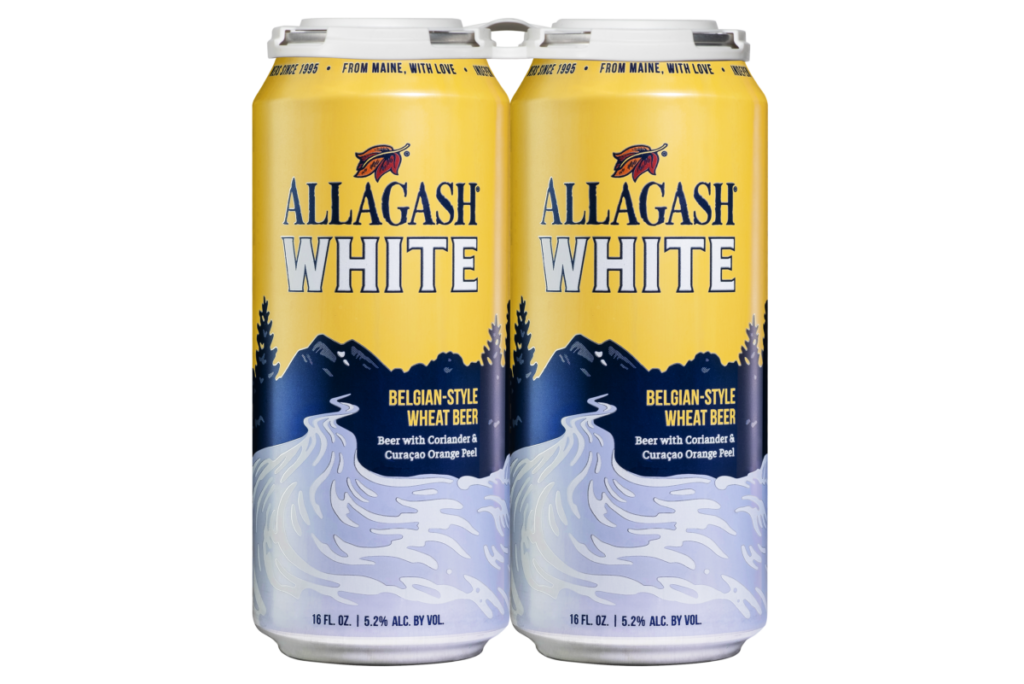
EK: Did you ever picture that beer going nationwide like this?
RT: No. I thought when I retired, I’d have like five employees and we’d just be selling beer in Maine. I’ve never been motivated by volume, but we’ve been blessed by a lot of volume. We’ll make over 100,000 barrels of beer this year. We have 150 employees. We’ve really used the volume to do more good. With more volume, we’ve been able to buy way higher quality equipment. In 2019, we gave over $370,000 back to the local community. We just became a certified B-corp. Hopefully, we’ll continue to grow and continue to do more good. That’s the stuff I’m really passionate about — that as our quality improves, we can treat our employees better, give more back to the community, and be more sustainable. That’s what gets me excited. So, hopefully more volume means more of that.
EK: I really appreciate that within all of those volumes, you guys experiment but you never stray from the Allagash way. How are you able to keep your beers clean in their creativity as opposed to relying on trends to move forward?
RT: So, a couple things. We have a really cool innovation program at the brewery. Rather than just me, the owner, or Jason [Perkins], the brewmaster, doing all the innovation, we have this little 10-gallon brew house at the brewery, and if anyone at the company — whether they’re sales, accounting, production, administration — has an idea for a beer, they can talk to Jason and brew it on the little system. We have basically 150 passionate employees innovating all the time, and we’ll run that little brewhouse probably 100 times this year. And, what I philosophically and us at the brewery believe in is balance and subtlety. We’re not that inspired by beers where one flavor or aroma overwhelms. I like a beer that when I take a couple sips, it keeps me guessing, like what are those subtle flavors? Balance and gentle flavors have always been very important to us. Like with the River Trip that you’re drinking, I call that a hop-forward beer. It’s not a bitter beer. It’s got a really hop-forward aroma because it’s dry-hopped, but it’s not dominated by the hops.
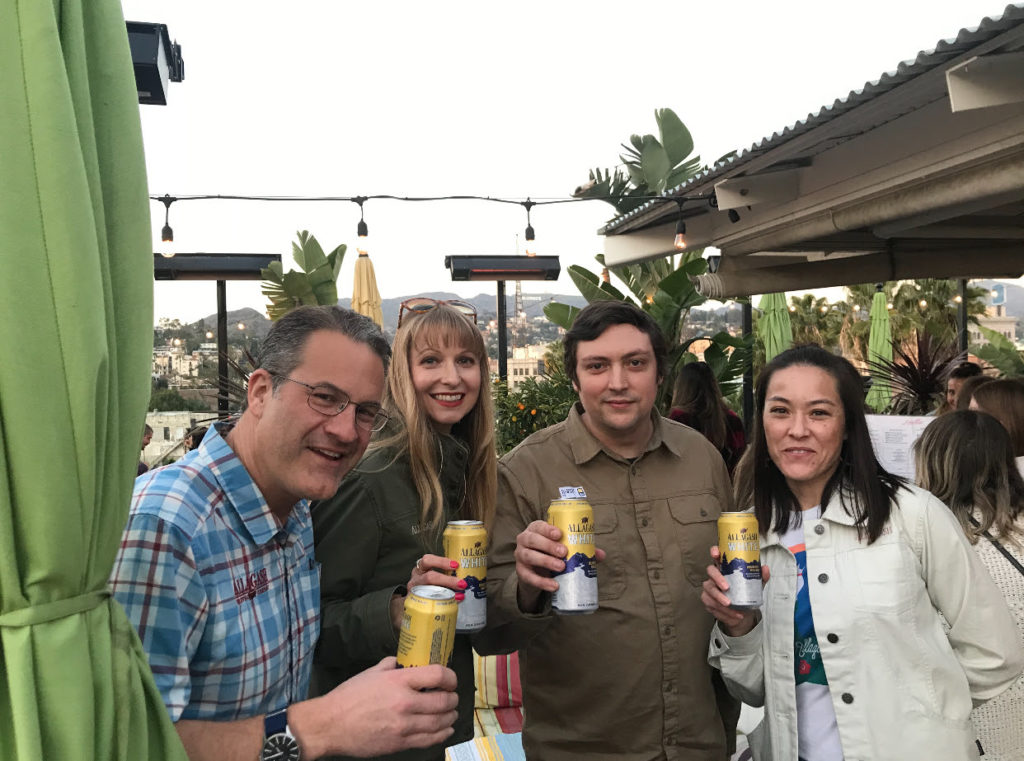
EK: It’s a great day-drinking beer, for sure. What does a perfect Los Angeles day look like for you?
RT: Today was a perfect L.A. day. I stayed in Hollywood, woke up, and went to Malibu. I surfed with a friend of mine. It was like 70 degrees, perfect waves, perfect conditions. I’ve only been surfing for four years, but it was my best surfing day on record. It was amazing. Then I came back and spent time at our distributor, Wine Warehouse, who’ve been an amazing partner for us for 17 years. And here [at Player One] it’s been fun, because I’ve been able to chat with some beer lovers and some customers. So, to me, this is like a perfect day. And the weather is gorgeous.
